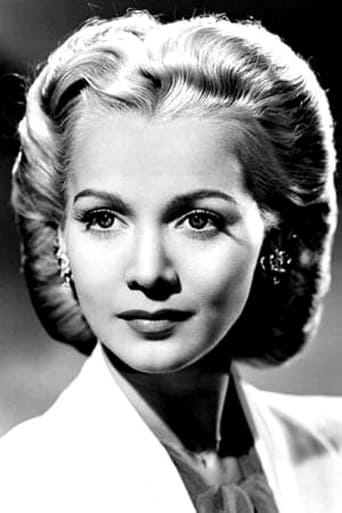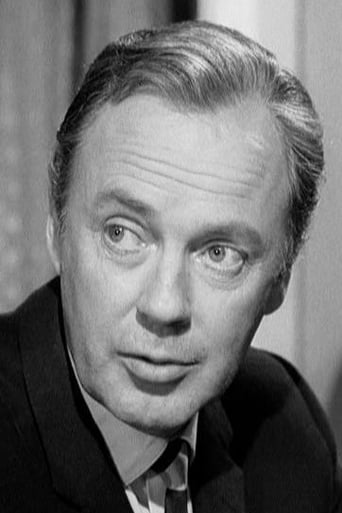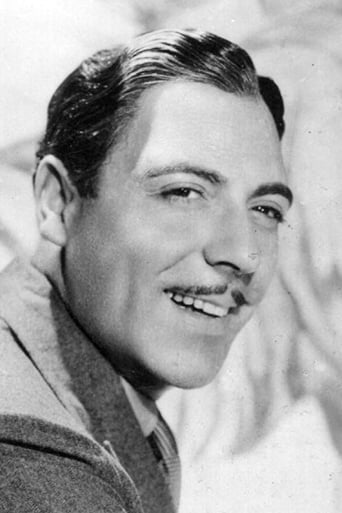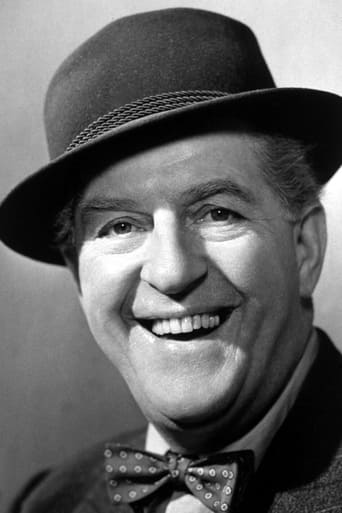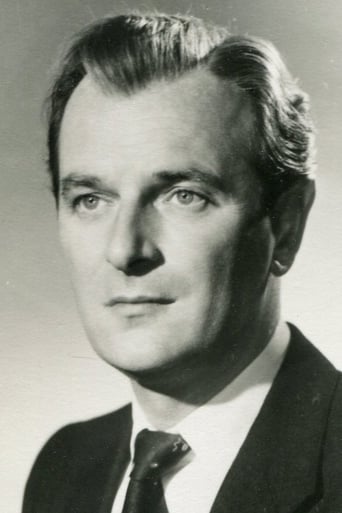Leofwine_draca
NOOSE is a well-plotted but oddly uninspiring little crime film which deals with efforts to bring down an Italian black market racketeer operating in London following WW2. His sheer breadth of power means that the authorities are powerless against him, until a lone female reporter decides to write a scoop that brings him out of the woodwork and up against her.There's some great material in the narrative here, including a completely amoral villain who enjoys using knuckle dusters to beat up women! The stark gang violence makes ahead of its time, but it's a pity that the execution is less than stellar. The film plods when it should grip, and it only really gets going in the last twenty minutes or so, with an unusual and rather powerful climax. It's one of those rare films where the women are both empowered and sexualised, leaving the men looking weak by comparison.The tragic Carole Landis stars in her penultimate acting role before her untimely suicide and very good she is too: bright, brassy, and running rings around the menfolk. Joseph Calleia and Derek Farr are rather uninspired as the rival protagonists, though we do get the likes of Stanley Holloway in support, and even a brief cameo for Michael Ripper. Nigel Patrick is something of a scene stealer as a loud-mouth spiv, and although his telephone manner is absolutely hilarious, I found his brash character ended up being too over the top for his own good.
grainstorms
Although visiting American actress Carole Landis gets top billing in the 1948 British crime thriller, "The Silk Noose" (AKA "The Noose"), it's the much underrated English actor, Nigel Patrick ("The League of Gentlemen," "The Sound Barrier," "Raintree County") who steals this movie. From his very first appearance yelping cheerful insults into a telephone, Nigel Patrick takes command of this unusual British crime feature, as a flip and glib Cockney gangster who is part conniving Phil Silvers (think "Sgt. Bilko"), part sleazy Michael Palin (think suavely snide East End hoodlum Luigi Vercotti in "Monty Python"), and part fast-talking James Cagney (think "One, Two, Three") .So wacky and so unexpected and so hilarious is Patrick's maniacal insincerity that you may drum your fingers impatiently during the few scenes that he's not on camera being cheerfully devious -- however action-packed some of those scenes may be. (There is considerable action in "The Silk Noose," some of it nail-biting -- this, after all, is a near-noir crime story with an alarming body count -- but on the whole it's comic-book roughhousing, best captioned by "Pow!" " Bam!" and "Oomph!")Written by Richard Llewellyn ("How Green Was My Valley," "None But the Lonely Heart"), "The Silk Noose" homes in on "spivs," British racketeers of the late 1940s , grown fat on wartime black market profits, and now still doing their bit for Britain by blithely counterfeiting, smuggling, and, for all we know, loitering and littering. (It may take you back to Jules Dassin's more earnest, better-known "Night and the City," with Richard Widmark, which came along two years later.)In this particular case, the local don, Sugiani (Joseph Calleia), prefers to perform his perfidy out of a posh Soho nightclub that features très chic chanteuses and très cher champagne. Looking like a Satanic Cesar Romero, Maltese-American actor Joseph Calleia cheerfully overacts, shaking his part until it cries "Basta!" Both sinister and jovial at the same time, Calleia's gangster could be seen as a stand-in for Mussolini – posturing, threatening and begging for adoration simultaneously.Make no mistake, for all his charm and over-the-top grand opera posturing, Sugiani can be a very dangerous man, particularly when issuing orders to his very own Heinrich Himmler, a spine-chilling personal assassin known as "Barber" (the great Dickensian character actor, Hay Petrie), an unctuous, leering Claude Rains-clone who scuttles around a bleak London like a human cockroach, using a silk stocking ("the noose") as his preferred means of dispatch. Nigel Patrick's Bar Gorman is Sugiani's right-hand man and/or partner. He could also be a stand-in for Nazi propaganda minister Joseph Goebbels, particularly when barking orders over his huge desktop intercom or trying to wheedle favorable newspaper publicity. The relationship of the two crooks is complicated, and at times the two suddenly snarl at each other like strange dogs passing on the street, then as quickly make up. It's an insane partnership made in Hell, and the two men, continuously on edge, are a fascinating team, blending affinity, iniquity and irrationality.Into this hidey-hole of Axis-style moray eels merrily steps the Dior-dressed figure of Carole Landis, an American fashion editor working for a London newspaper (don't ask). Dressed to the nines in every shot, Landis, as a brash and beautiful career girl, puts across a delightful sassiness as she investigates a grisly London murder that isn't getting the attention she feels it deserves. As expected, the trail leads to the bad, bad Sugiani, but, surrounded by his thuggish hirelings, he's apparently invulnerable. However, in a twist reminiscent of the creepy Peter Lorre classic, "M", the muscle-bound laborers of London's docks and markets are enrolled in a vigilante lynch mob, the lumpenproletariat out to take back their streets, and a rousing if unconvincing version of class warfare breaks out as the forces of Good, wearing football jerseys, battle the forces of Evil, in dinner jackets.With all this, "The Silk Noose" would still be just another dated British "spiv" movie -- though with a few comedic grace notes -- but for Nigel Patrick's virtuoso performance and these three significant particulars :1. Stanley Holloway, the beloved Alfred P. Doolittle of "My Fair Lady," plays a very well-dressed Scotland Yard inspector who may be on the take, and does it up well. He has a surprisingly commanding presence as a top cop and uses his authoritative voice to get your attention and hold it. 2. The director was Edmond Gréville, who had apprenticed with the legendary Frenchman Abel Gance ("Napoleon") . Besides pacing the movie with fast rhythmic editing, he offers up a boutique of superimposed images, extreme close-ups, artistic camera angles and surprising staging, so you don't dare blink for missing some exciting shot or experimental exposure. (For instance, he shoots one nightclub scene through the multifaceted glass top of a perfume bottle -- giving it the vertiginous viewpoint of a drunken housefly.) There's also an unexpected degree of eroticism, which marked many of the films of this half-French half-British director. 3. "The Silk Noose" was to be the next-to-the-last movie of the tragic Carole Landis, who had died by the time of the film's release in August 1948. A delightful actress with unrealized potential, she had worn herself out with endless USO tours: she had traveled more than 100,000 miles during the war, had spent more time visiting troops than any other actress, and had even caught a nasty case of malaria. By the time she killed herself at the age of 29, she had been married five times. Under still mysterious circumstances, her body was discovered by her married boyfriend, actor Rex Harrison , who, almost two decades later, was to appear with Stanley Holloway in " My Fair Lady", a triumph for them both.
MARIO GAUCI
Being vaguely aware of this obscure British noir, I had acquired it a few years ago from a film buff friend of mine (who also happens to be an award-winning lyricist) following a biography shown on local TV of Maltese film actor Joseph Calleia. It had not occurred to me to include the film in my ongoing Thriller marathon; however, I could not very well leave it out once I read, just a couple of days ago, an article about "Time Out"'s recent "100 Best British Films" in which contributor/French film director Bertrand Tavernier bemoaned there not being enough room in his Top 10 list for, among others, NOOSE! I was under the mistaken impression that the copy I got was of inferior quality which would not best be suited for display on my 40" monitor which is why I watched it on a much smaller screen but, as it turned out, the film did get released on DVD in the UK.Adapted from his own stage play by Welsh writer Richard Llewellyn (best-known for having penned John Ford's 1941 Oscar-laden HOW GREEN WAS MY VALLEY), the film largely escapes its theatrical roots thanks to Greville's admirably Expressionistic direction that should have earned it a much better reputation (even among fans of the genre and film buffs in general) virtually comparable to that nowadays enjoyed by Alberto Cavalcanti's THEY MADE ME A FUGITIVE (1947) and Jules Dassin's similarly Soho-set NIGHT AND THE CITY (1950; with a wrestling back-drop to NOOSE's prizefighting milieu)! Actually, I do think there is a reason for this neglect since, rather than the relentless post-war bleakness and realism associated with this type of film, there is a welcome air of theatricality (in the acting) and light-heartedness (in the comic incidents that crop up intermittently).Carole Landis, who for some reason is forever losing her shoes, is a bit too jovial for a noir heroine; ironically, she would die a suicide later in the year, after completing BRASS MONKEY (1948), another genre effort which I hope to acquire (and include) in my current schedule. Derek Farr, too, is a bland leading man – though, as already mentioned, he manages to organize a boxing outfit into efficient opposition to the gangsters involved. On the other hand, Joseph Calleia has one of his better roles: atypically, he received before-the-title billing for this rare foray to the U.K. (incidentally, at the time, our native country was a British colony) and is constantly breaking into Italian and singing operatic arias; though something of a caricature (especially in those scenes featuring his luscious starlet protégée Carol Van Derman), his is an impressive performance regardless. Despite figuring way down in the cast list, Nigel Patrick is really the protagonist as Calleia's right-hand man: he brings such manic energy to the role that it would not be amiss in a screwball comedy!; in fact, on the strength of this, I managed to get hold of Patrick's intriguing self-directed religious parable JOHNNY NOBODY (1961). Stanley Holloway, then, tackles an unusually serious role as the cop on Calleia's trail, while Hay Petrie gives a memorably chilling portrayal as Calleia's combination of private barber and assassin (actually looking a bit like Claude Rains!).One last thing: I watched this very late at night, believing it to be just 76 minutes long as given on the IMDb: presumably, this duration alludes to the U.S. release print that was re-titled THE SILK NOOSE – being a reference to Petrie's murder 'weapon'; however, the copy I acquired turned out to be the full-length British version running 98 minutes.
